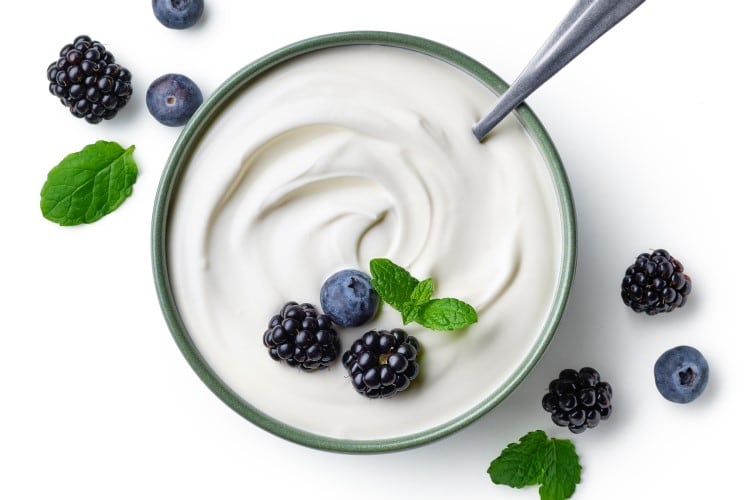In a bid to evaluate the therapeutic effects of products like cheese, yogurt and kefir, researchers from four academic institutions in China and Pakistan reviewed published research to identify where there are links between consumption and positive disease management outcomes.
For example, existing research has shown that yogurt can be used to manage osteoporosis, a degenerative bone disease, and its consumption has been linked with preventing diarrhea and reducing lactose intolerance. “The major way that yogurt helps manage osteoporosis is because it contains a lot of calcium, which is good for strong bones,” the researchers pointed out in their review. “Enhanced with vitamin D, it also improves the absorption of calcium. Bone health is enhanced by the protein and other nutrients included in it.”
The review also concluded that yogurt intake is more consistently linked with reducing the incidence of type 2 diabetes compared to other dairy products. Probiotic yogurt in particular has also been proven to positively impact people with liver conditions, according to existing research examined by the authors.
However, yogurt’s therapeutic effects on cancer were less clear-cut based in existing evidence, the authors pointed out.
Kefir’s anti-cancer potential has been demonstrated through several studies, its consumption linked with slowing down tumor growth in mice and reducing the development of colorectal cancer cells.
The fermented beverage – which is a rich source of vitamins, minerals and beneficial bacteria - has also been found to exhibit antimicrobial properties, largely due to its high probiotics content, organic acids and bioactive compounds. Similarly to yogurt, kefir has also been proven to aid digestion including of lactose; improve the gut lining, and reduce allergy and asthma risks.
Did you know?
Ripened cheese is naturally lactose-free. This is because part of the lactose is removed with the whey during maturation, and the remaining amount is fermented into lactic acid, acetic acid, diacetyl, acetaldehyde, ethanol and CO2.
Cheese is well-known for its high nutrient density, but the high content of saturated fatty acids in some varieties has seen it linked to an increased risk of cardiovascular disease, the authors stated.
But while reviewing published scientific evidence, they found a large-cohort study where regular consumption of cheese, whole and sour milk, was linked with a decreased risk of cardiovascular disease, an effect that appears to be associated with calcium and bioactive peptides, which were found to decrease systolic blood pressure.
The effects of probiotic-rich cheese had also been examined in relation to the food’s potential therapeutic effects on rheumatoid arthritis. A 2022 clinical trial involving 40 rheumatoid arthritis patients concluded that the consumption of probiotic cheese reduced inflammation and enhanced the gut microbiota, which in turn reduced the severity of the arthritis symptoms.
What is probiotic cheese?
Cheese that contain probiotic are typically those varieties that are aged, but haven’t undergone heat treatment afterwards. This could include both hard and soft varieties, from gouda and edam to cottage cheese.
The authors also highlighted a study on mice linking the intake of 35-day aged cheese with enhanced glucose tolerance, a sign of aged cheese’s potential therapeutic effects on diabetes; and quoted evidence – albeit the most recent from 2011 – of aged cheese’s antibacterial properties and preventive effects on dental caries formation.
“Fermented foods make up approximately 33% of diets in Asia, whereas they make up 60% of diets in developing countries,” the authors concluded. “It has become abundantly obvious from an accumulation of studies that consuming fermented milk produces good health effects in several pathological disorders.
“The growing body of supporting evidence from the published research is highly encouraging; it should serve as a driving force for the food industry to produce novel functional dairy products that are not currently available on the market.”
Source: Therapeutic potential of popular fermented dairy products and its benefits on human health
Authors: Gul Naz Saleem, Ruixia Gu, Hengxian Qu, Gul Bahar, Khaskheli, Imran Rashid Rajput, Muhammad Qasim, Xia Chen
Published: Frontiers in Nutrition, 28 February 2024
DOI: 10.3389/fnut.2024.1328620




